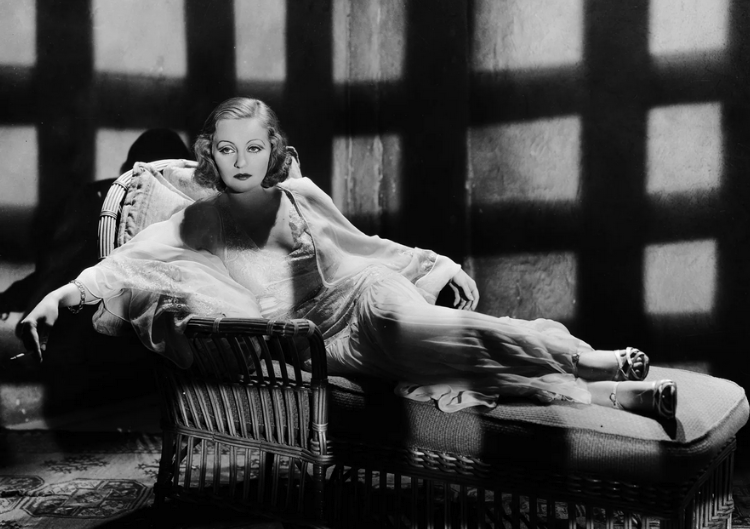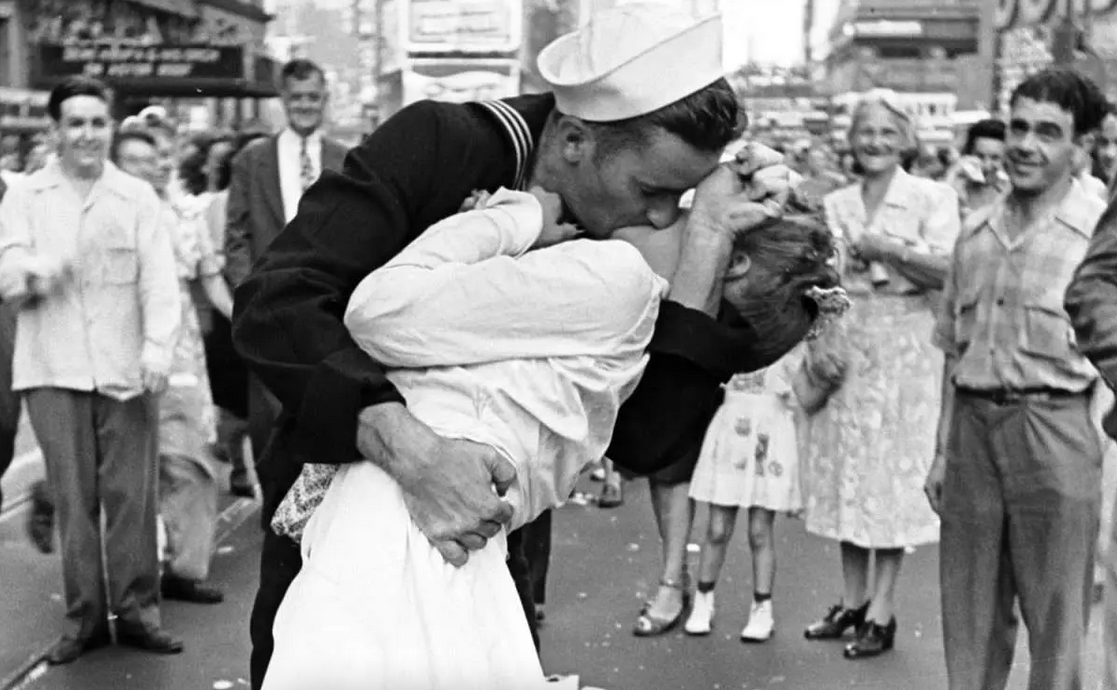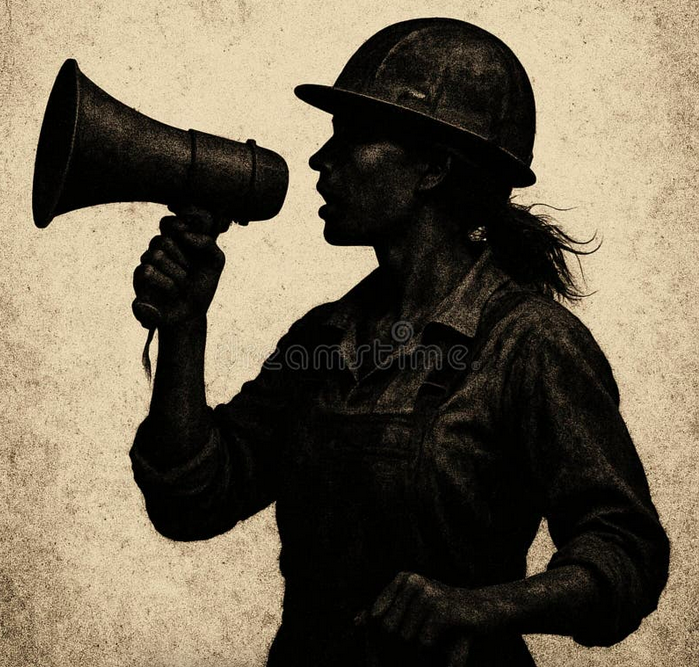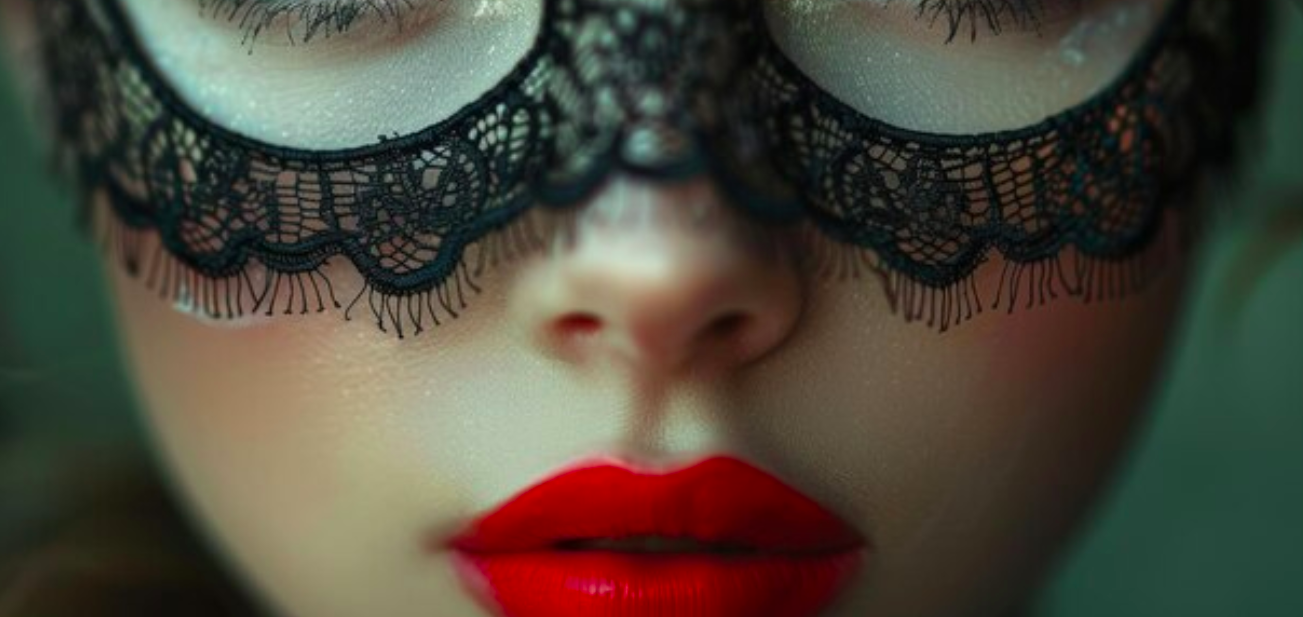This article attempts to give the reader an overview of the larger than life persona of Tallulah Bankhead in a small nutshell.
Many famous stage actors quietly fade from the public’s memory. Who recalls Katharine Cornell, the “First Lady of the American Theater”?
Or Helen Hayes, another First Lady? Or Ethel Barrymore, revered as the “First Among Firsts”? (Although, yes, she was the great-aunt of Drew.)
TALLULAH DOESN’T FADE…
Of the theatrical icons of their era, only Tallulah Bankhead, who passed away in 1968, has remained as a symbol of glamor of the day.
Since her death, seven biographies have been published. This includes Joel Lobenthal’s Tallulah! The Life and Times of a Leading Lady, released just last fall.
Her 1952 memoir Tallulah, which once reached No. 5 on the nonfiction bestseller list, is back in print.
Although few remember Tallulah’s stage work and even fewer watch her handful of films, her persona lives on, larger than life.
Bankhead was more a celebrity than a conventional actress. In fact, she was a force of nature—self-destructive, endlessly demanding, and always a magnet for attention.
On her final public appearance on The Tonight Show, she conversed with Paul McCartney and John Lennon.
A fitting testament to the complexity of her career.
IN THE BEGINNING…
Her first major success came in London in 1923, opposite Sir Gerald du Maurier, the leading matinée idol of the British stage.
Daphne du Maurier, his daughter, famously exclaimed upon meeting Bankhead, “Daddy, that’s the most beautiful girl I’ve ever seen in my life.”
Tallulah was infamous for her term “dah-ling” and distinctive baritone voice.
This lead fellow actor and writer Emlyn Williams to describe Bankhead’s voice as “steeped as deep in sex as the human voice can go without drowning.”
Her life was full of contradictions which went beyond scandal and entered the realm of tragedy.
From the start, tragedy was a part of Tallulah’s life. Her mother died of complications after giving birth to her at the age of 21. This left her father, Will, grief-stricken and absent.
The Bankheads of Alabama were aristocratic but not wealthy. Tallulah and her sister, Eugenia, were raised by their grandparents and aunts in a strict but indulgent environment.
Her father, William Bankhead eventually found success as a politician and Speaker of the House under Roosevelt.
Tallulah, following his lead, became a lifelong, ardent Democrat, taking credit for helping elect both Truman and Kennedy.
In addition to politics, Tallulah inherited her father’s early acting ambitions.
As a child, she was drawn to performance, often entertaining her father’s inebriated friends with risqué songs. A natural exhibitionist, she craved attention from a young age.
However, her theatrical temperament was also marked by wild tantrums when she didn’t get her way, leading to physical outbursts.
Her grandmother, ever pragmatic, would douse her with water to calm her.
By fifteen, Tallulah was determined to become an actress and convinced her family to support her ambitions.
With the backing of her grandfather, a former U.S. senator, she moved to New York, where she lived at the legendary Algonquin Hotel.
There, she encountered the greats of the theatre, including John Barrymore, who attempted to seduce her.
Although she lacked formal training and discipline, her charm and beauty made her a notable presence in New York’s theatre scene.
OBSESSED QUEST FOR FAME…
Tallulah once wrote, “I was consumed by a fever to be famous, even infamous.”
In her quest for fame, she dabbled with alcohol and cocaine, and pursued shock tactics, particularly through her sexuality.
She boasted of relationships with women, including actress Eva Le Gallienne, but ultimately preferred men.
One of her greatest loves was Napier Alington, a British aristocrat who was described as charming yet cruel.
Despite her turbulent relationships, Tallulah remained a star in the making.
Despite struggles with finances and small roles, Tallulah’s big break came in London in 1923 when she was cast in The Dancers, a play in which she became a sensation.
With her stunning looks, unique voice, and boundless energy, she won over the West End of London. In fact, Bankhead developed a devoted following of fans who would scream and cheer for her.
Arnold Bennett, observing her popularity, famously described her reception as “a terrific, wild, passionate, hysterical roar and shriek.”
Her success in London solidified her as a theatrical phenomenon.
Throughout her London career, Tallulah appeared in numerous plays, from trivial works to the Pulitzer Prize-winning They Knew What They Wanted.
DARKNESS LOOMED…
She experienced a dark moment when Somerset Maugham replaced her in a production of Rain, prompting her to attempt suicide.
However, she survived and continued to rise in the West End. She often indulged in a highly publicized personal life that included relationships with various men. Such as, tennis champion Jean Borotra and Lord Birkenhead.
By the time she turned thirty, Tallulah was running out of money and facing the prospect of fading into obscurity.
However, an opportunity arose in Hollywood, which was eager to sign up stage stars now that sound films had arrived. Paramount offered her $5,000 a week, and Tallulah moved to Hollywood in 1931, hoping to become the next Garbo or Dietrich.
However, her film career didn’t take off as expected. Despite making six films in a year and a half, she was mostly criticized for being miscast or not living up to the roles.
Director George Cukor famously remarked that while she had beautiful bones, her eyes were not suited to the camera.
Tallulah, it turned out, was a creature of the stage, where her outsized personality could command an audience, not a screen that required subtlety and introspection.
Despite her lack of success in Hollywood, Tallulah enjoyed the lifestyle, indulging in extravagant parties and romantic escapades, including a memorable encounter with Johnny Weissmuller in the Garden of Allah pool.
After her film career faltered, she returned to Broadway, but her choices were often disastrous.
Her 1937 performance in Antony and Cleopatra was a notable failure, and her marriage to actor John Emery, whom she had picked up during her summer stock years, also ended in disappointment.
A BRIEF COMEBACK & THEN…
The 1940s saw a resurgence in Tallulah’s career, particularly on Broadway.
Her role as the Southern matriarch Regina Giddens in The Little Foxes won her critical acclaim, and she became a fixture in Lillian Hellman’s plays.
In 1944, her performance in Lifeboat, directed by Alfred Hitchcock, earned her praise from the New York Film Critics Circle, but the film did not lead to a lasting Hollywood career.
Still, she remained a force on the stage, even if her personal life became increasingly chaotic.
Her later years saw a growing interest in politics, and she became an outspoken critic of McCarthyism and an advocate for the Democratic Party.
In the early 1950s, Tallulah found new success as the host of The Big Show, a radio program that became a surprise hit. It was one of her last major successes before her career began to decline.
THE DEMONS SET IN…
By the 1960s, Tallulah’s personal demons—alcoholism, drug abuse, and a growing sense of despair—took their toll.
She became increasingly erratic, known for her wild behavior and erratic speech.
Yet, even in her final years, her humor remained intact.
As her physical health deteriorated, Tallulah continued to crave attention, often asking those around her to sit with her while she struggled to sleep.
In 1968, after years of declining health, she died of double pneumonia.
Her final words were reportedly, “Codeine—bourbon.”
Tallulah’s decline was a sharp contrast to the glamorous, commanding woman she once was, but her legacy remains—a complex mixture of talent, excess, and tragedy.
While she never achieved the same kind of longevity in her career as some of her contemporaries, like Helen Hayes or Katharine Cornell, Tallulah Bankhead’s mark on the stage and on Hollywood remains indelible.











